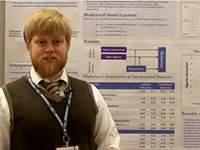From: The Huffington Post
Uncommon Sense: Toward an RQ Test?
The Huffington Post:
We all know people who are highly intelligent but not very smart. These people get good grades in school, ace a lot of tests, and often succeed professionally. But they nevertheless hold irrational beliefs and do a lot of foolish things. Such people almost certainly have high IQs, but IQ scores do not reflect their particular form of cognitive deficit. Indeed, these people seem to be unable to think and act rationally despite their high intelligence.
University of Toronto psychological scientist Keith Stanovich has a name for this disability. He calls it “dysrationalia,” and he has spent the last several years trying to define the nature of this common deficit. He is giving an overview of dysrationalia at this week’s meeting of the Association for Psychological Science in Washington, D.C.
Consider this mental problem: “Jack is looking at Anne, but Anne is looking at George. Jack is married but George is not. Is a married person looking at an unmarried person?” Is the answer yes or no, or can the answer not be determined?
Most people conclude that they don’t have enough information to solve this problem, even though the correct answer — yes — can be arrived at fairly easily. The only person whose marital status we don’t know is Anne, so let’s try it both ways. If Anne is married, she is looking at unmarried George, so the answer is yes. If Anne is unmarried, and married Jack is looking at her, the answer is also yes.
Read the whole story: The Huffington Post
See Keith Stanovich at the 25th APS Annual Convention.
Wray Herbert is an author and award-winning journalist who writes two popular blogs for APS, We’re Only Human and Full Frontal Psychology.
More of our Members in the Media >




APS regularly opens certain online articles for discussion on our website. Effective February 2021, you must be a logged-in APS member to post comments. By posting a comment, you agree to our Community Guidelines and the display of your profile information, including your name and affiliation. Any opinions, findings, conclusions, or recommendations present in article comments are those of the writers and do not necessarily reflect the views of APS or the article’s author. For more information, please see our Community Guidelines.
Please login with your APS account to comment.